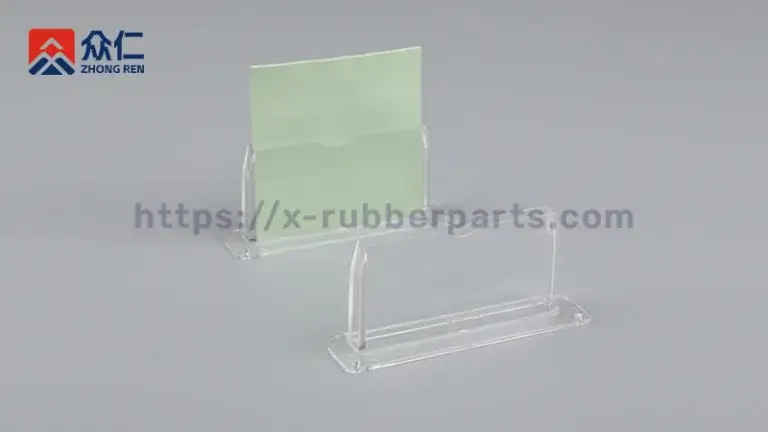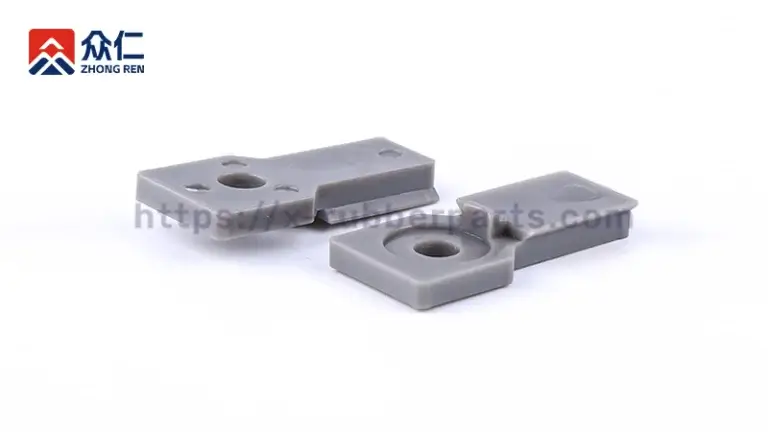

Custom PTFE Molding Product
Custom PTFE Molding Solution
Zhongren specializes in custom-molded PTFE components for critical applications requiring exceptional chemical resistance, thermal stability, and low friction. With deep expertise in processing high-performance fluoropolymers, we produce precision-molded PTFE parts that meet the strict requirements of aerospace, medical, and industrial sectors. PTFE molding ensures long-term performance in harsh environments where conventional plastics or rubbers cannot endure.
How Are PTFE Parts Manufactured?
Depending on the product geometry and performance requirements, we offer the following PTFE manufacturing methods:
- PTFE Compression Molding
- PTFE Extrusion
- PTFE Injection Molding
- PTFE CNC machining
Successful molding of PTFE demands precise control of temperature, sintering cycles, and post-processing techniques to ensure stability and performance.
Common Applications of Injection Molded PTFE
Thanks to its chemical inertness, thermal resistance, and electrical insulating properties, injection molded PTFE is widely used in:
- Seals and gaskets
- Valve seats and pump parts
- Insulators and cable spacers
- Medical devices and implantable components
- Semiconductor parts
- Labware and fluid handling systems
Our Valued-Added Services
- Design and Engineering Support
- Material Testing and Certification
- Surface Finishing and Printing
- Assembly and Sub-Assembly
- Custom Packaging and Labeling
Advantages of PTFE Molding
- Exceptional resistance to chemicals, acids, solvents, and bases
- Extremely low friction and non-stick properties
- Wide operating temperature range (-200°C to +260°C)
- High dielectric strength and electrical insulation
- FDA, UL, and RoHS compliance possible
Disadvantages of PTFE Molding
- Difficult to process using conventional injection molding (requires special tooling)
- Lower mechanical strength and wear resistance without fillers
- Poor adhesion to other materials
- More expensive than common thermoplastics like PP or Nylon
FAQ of Molding PTFE
Can PTFE be injection molded like other plastics?
Can PTFE be bonded to metal or other materials?
Yes, but it requires surface etching and specialized adhesives or mechanical fastening due to PTFE’s low surface energy.
How accurate are molded PTFE parts?
Is there food-grade PTFE available?
Yes, we offer FDA-compliant PTFE materials suitable for food processing and medical applications.
What's the difference between PTFE and other engineering plastics?
Unlike POM, Nylon, or PEEK, PTFE is unmatched in chemical resistance and friction performance. However, it has lower mechanical strength unless reinforced, and higher processing cost.




